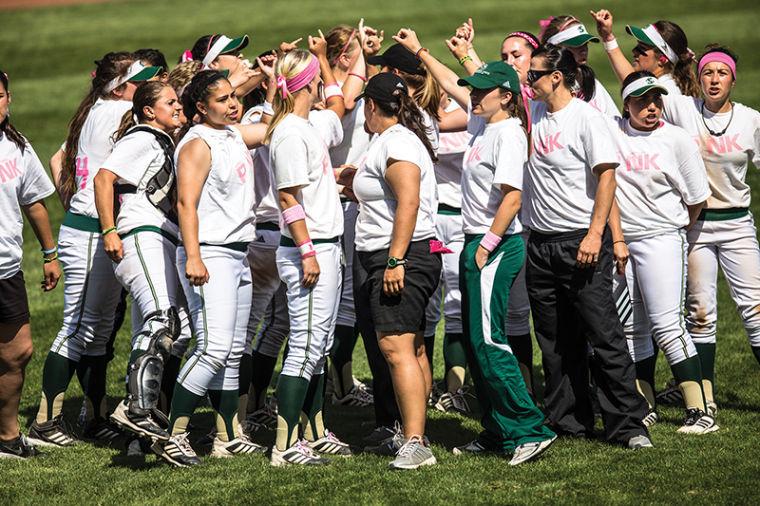Big Sky talks athlete union
Both men’s and women’s sports are considered a part of Division I athletics and participate in NCAA championships with more lucrative conferences.
April 14, 2014
With recent developments coming out of Northwestern University, where the National Labor Relations Board deemed the Wildcats football players employees of the university, the Big Sky Conference has taken notice and addressed the issue during a March 9 conference call.
“It was the topic of conversation for over an hour as all of the athletic directors and senior women’s administrators from the conference member schools are on that call,” said Sacramento State Athletics Director Terry Wanless. “It definitely has our attention.”
Wanless said the conference call included discussion about what some of the major conferences, such as the Pac-12, SEC and ACC, and talked about structure and if the larger schools desire to keep the NCAA together, which includes less lucrative schools like Sac State.
While only Northwestern is the only school that filed to become a union with the National Labor Relations Board, the movement was started when former Wildcats quarterback Kain Colter met with the College Athletes Players Association’s president and former UCLA linebacker Ramogi Huma.
According to it’s website, College Athletes Players Association’s goals include minimizing college athletes’ brain trauma risk, raising scholarship amounts and preventing players from being stuck paying sports-related medical expenses, in addition to other concerns.
“We, the universities, have not developed that sense of trust with the student athletes that shares with them that we have their best interest at heart,” Wanless said.
In an email to the State Hornet, Big Sky Commissioner Doug Fullerton said while he thinks universities should not stand in the way of student athletes’ attempts to improve their situations, the recent step might be to the detriment of the system of college athletics.
“It could bring unintended consequences to the institutions, the athletic enterprise in general, but most importantly, the student-athletes if they are now considered employees,” Fullerton wrote. “They’ve been protected in ways that employees in the workplace are not protected. We believe there are better solutions to help the student-athletes attain their goals.’’
If unionization were to take place in Division I college athletics, Wanless said football would be the least likely to be affected, but sports that compete against larger conferences regularly would have to expect changes.
“While [larger schools] don’t need us for football, they need us for golf, swimming and track and field to make those true championships,” Wanless said. “If you only have the 65 (major) schools for example, in basketball, now you’ve got No. 14 in the ACC playing against No. 14 in the SEC in a first-round game—who cares?”
As it stands, athletes are eligible to receive scholarships that cover the cost of tuition and in some cases, room and board and can have jobs. They also can receive financial aid like the Pell Grant, but cannot be paid for athletic performance or anything derived from their status as an athlete. There is also the Student Athlete Opportunity Fund, which can be drawn from to help student athletes in emergency situations and governed by the NCAA.
Before the start of the 2013 NCAA football season, Texas A&M quarterback Johnny Manziel was suspended after signing autographs at an appearance for a sports memorabilia dealer.
Another issue Colter raised is the time athletes put into his or her sport. According to cbsnews.com, which cited an NCAA survey, college athletes put in about 30 to 40 hours per week participating in their respective sports.
Sac State men’s basketball junior forward Alex Tiffin said while he thinks athletes get enough money as is and not being able to afford things food is more of an issue with an individual’s ability to budget issue. However, he is not completely against the idea of a college players union.
“I think if someone were to unionize (college sports) and help athletes out and there were someone overseeing it all, it could definitely be a good thing,” Tiffin said. “I don’t think too many changes need to be made.”
Wanless said unionization could potentially widen the competitive gap between schools from profitable conferences that have TV deals and Big Sky Conference schools like Sac State that do not generate money from media deals.
Following the National Labor Relations Board’s decision, Northwestern appealed the case, which could tie the case up for months if not years. Eventually, the case could land in the Supreme Court.






























































































































